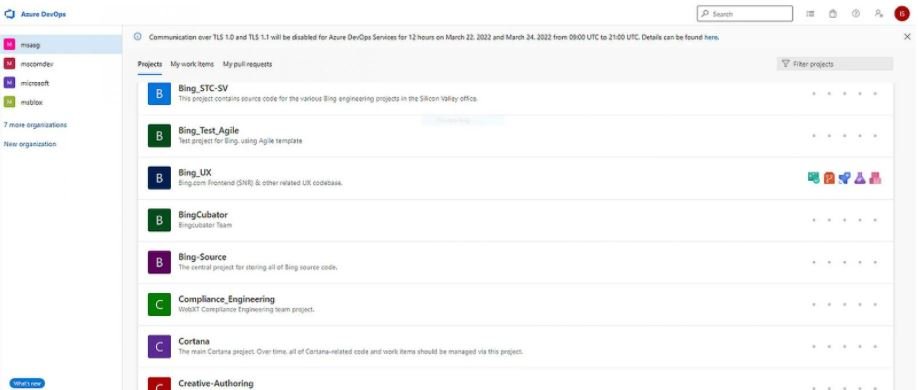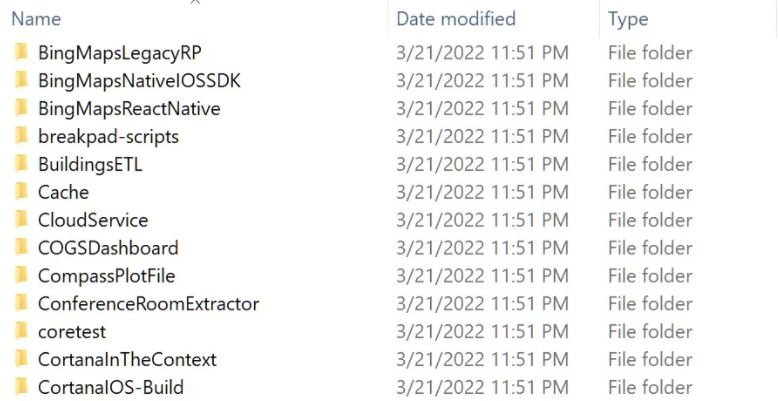Lapsus$ hackers claim to have compromised the internal servers of Microsoft Azure DevOps to steal the source code of the firm’s projects such as Bing, Cortana and others. In a Telegram group, hackers posted a screenshot indicating the contents of the alleged leak, in addition to publishing a torrent of a 9GB ZIP file containing the source code of more than 250 projects.
In publishing the torrent, the hackers claimed that the file contains about 90% of Bing’s source code and about 45% of Bing Maps and Cortana’s code.

Since the leak appeared, some researchers began to analyze the contents of the files, concluding that they are legitimate internal source code of Microsoft. In addition, it has been identified that some of the leaked projects contain emails and internal documentation related to the development of mobile applications.
The code also appears to belong to some web-based infrastructure projects, websites, or mobile apps, so the leak doesn’t appear to have affected Windows, Windows Server, and Microsoft Office systems.

In this regard, Microsoft has only mentioned that its security teams are aware of the reports and an investigation has already been ordered in this regard, although at the moment there seems to be no more information available.
Lapsus$ is a hacking group recognizable for attacking corporate systems in order to steal source code, databases and other sensitive details in order to extort money from affected organizations, threatening to disclose this data in hacking groups if victims do not pay a ransom.
For weeks, Lapsus$ has captured the attention of the cybersecurity community, claiming responsibility for attacks against major companies such as Samsung, NVIDIA, MercadoLibre and Vodafone.
At the moment it has not been confirmed what is the method used by hackers to compromise the repositories of the affected organizations, although some researchers theorize that Lapsus$ has the collaboration of some internal threat actor to facilitate access to these resources. In the past, this group has used its communication channels to offer money to employees of tech companies in exchange for providing access to their systems.
To learn more about information security risks, malware variants, vulnerabilities and information technologies, feel free to access the International Institute of Cyber Security (IICS) websites.
He is a cyber security and malware researcher. He studied Computer Science and started working as a cyber security analyst in 2006. He is actively working as an cyber security investigator. He also worked for different security companies. His everyday job includes researching about new cyber security incidents. Also he has deep level of knowledge in enterprise security implementation.
